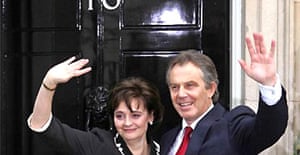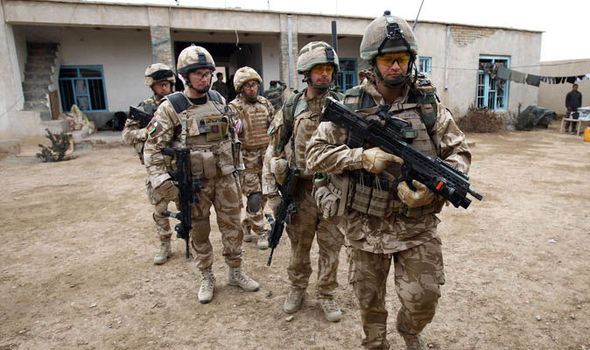General Headlines of the century
The new century hits the calm on the United Kingdom and some issues occures during the start of the 2000s, we colect a brief selection of the most important situations that happens from 2000 to 2005 in the UK and impact in general the public opinion
Britain decides not to join the European Single Currency
Widespread British unease about the
European single currency obliged Prime Minister Tony Blair, who was keen on the
project, to stay out. The 'euro' was launched as an electronic currency used by
banks, foreign exchange dealers, big firms and stock markets in 1999. Euro
coins first hit the streets of the 12 'eurozone' countries on 1 January 2002.
Global stock markets tumble as the 'dotcom
bubble' bursts
The late 1990s saw a profusion of start-up
companies selling products or services either using or related to the internet. At this moment UK was a most influential State in the field of internet and technology, the boom of this bubble cause a great and short impact in the UK economy
There was a speculative frenzy of investment in these 'dotcom' companies, much of it by small investors. The bursting of the 'dotcom bubble' saw the collapse of many of these companies and marked the beginning of a mild yet lengthy recession.
Foot-and-mouth disease wreaks havoc on rural Britain
In 2001 occurs the nine-month epidemic of 'foot-and-mouth'
disease resulted in the culling of millions of animals and devastated large
sections of the rural economy. The crisis brought the countryside to a virtual
standstill and the cost to British farming was put between £800 million and
£2.4 billion. The Labour government was heavily criticised for its handling of
the crisis.
Labour wins the general election, with Tony Blair returned as prime minister
 |
| Tony Blair arriving with his wife in Downing street |
Labour won a commanding majority of 167
seats in the elections of June of 2001. Prime Minister Tony Blair's second term came to be dominated by
controversial foreign policy issues, mainly the 'war on terror' begun after the
terror attacks in the United States on 11 September. The Conservative leader,
William Hague, resigned after the party showed little sign of electoral
recovery.
Britain joins the US in strikes on
Taliban-controlled Afghanistan
 At the ends of 2001, British forces contributed to the initial
US military strikes against the Islamic fundamentalist Taleban regime in
Afghanistan - the first retaliation to the terrorist attacks of '9/11'.
At the ends of 2001, British forces contributed to the initial
US military strikes against the Islamic fundamentalist Taleban regime in
Afghanistan - the first retaliation to the terrorist attacks of '9/11'.
The
Taliban, who had allowed the terrorist organisation al-Qaeda to use Afghanistan
as a base, was overthrown and replaced with a US-backed administration.
Coalition forces, including British troops, remain in Afghanistan. Osama Bin
Laden, the al-Qaeda leader responsible for the '9/11' attacks, was not found.
Two years later, Britain joins the US in an invasion of Iraq, despite significant opposition at home, the
British government gave military support to the controversial United States led
invasion of Iraq. Crucially, the action was not backed by a United Nations
mandate, sparking debate over the legality of the invasion. Iraqi President
Saddam Hussein was overthrown and captured. Iraq now has a democratically
elected government, but the country remains deeply unstable as a result of the
deliberate stoking of sectarian tensions by terrorist groups.
Kyoto Protocol on measures to control climate change comes into force
The agreement required countries to cut
emissions of carbon dioxide and other greenhouse gases by 5.2% by 2012. The
treaty was signed by 141 countries but the world's largest economy - and
largest polluter - the United States, did not ratify it. Climate scientists
argued that the 5.2% target was far too low, and a 60% cut was needed to make
an impact on climate change caused by human activity.
Labour wins a third consecutive term with Tony Blair as prime minister
Labour won, but with a substantially
reduced majority. Tony Blair joined Margaret Thatcher as the only post-war
prime ministers to have won three successive general elections. Nonetheless, he
quickly announced his intention not to stand for a fourth term, sparking
ongoing speculation about when he would hand over to his annointed successor,
Chancellor of the Exchequer Gordon Brown. Conservative leader Michael Howard
resigned to make way for a younger leader.
Three men blew themselves up on London
Underground trains, while a fourth exploded his bomb on a double-decker bus, during the summer of 2005, fifty two people were killed and more than 700 injured. On 21 July there were
four more attempted suicide bombings in London, but none of the devices
exploded. Islamic terrorist organisation Al-Qaeda claimed responsibility, but
it is thought that the bombers, all British Muslims, acted alone.
London 7/7 attacks representation by BBC
INTERESTING LINKS:
Article of the uncertainty that causes the Euro in 2001: Article link
UK govern celebrates it leadership in climate change fight 13 years after Kyoto protocol: Article link
Article of the uncertainty that causes the Euro in 2001: Article link
UK govern celebrates it leadership in climate change fight 13 years after Kyoto protocol: Article link

Comentarios
Publicar un comentario